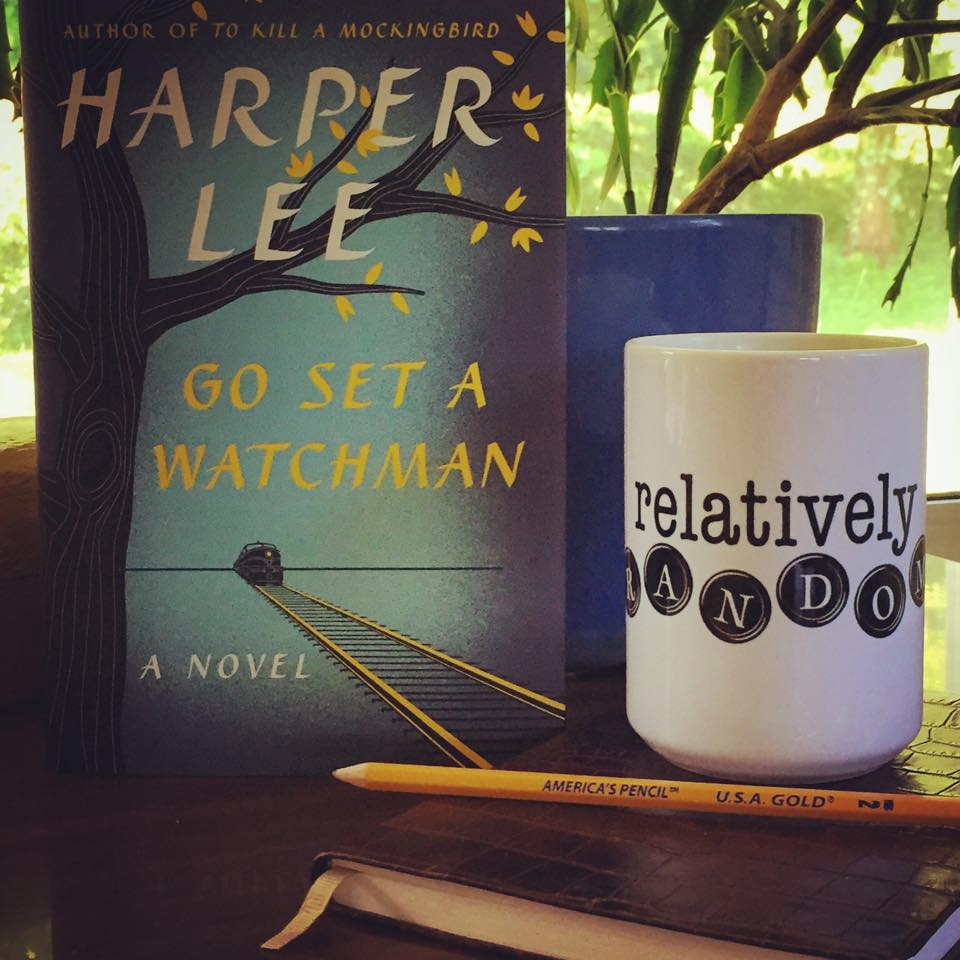Back in 1960, a new American author gave readers a “coming of age” novel called TO KILL A MOCKINGBIRD. It was well received, mostly, and we think of it now as a required high school reading and a must for movie fans everywhere. For over fifty years, we also considered it Ms. Harper Lee’s only publication (if she really even wrote it herself), and we marveled at the One-hit Wonder. How did Ms. Lee do it? The imagery. The gorgeous language. The unforgettable characters. The wit and the wisdom.
We treasured the text. In fact, when asked in a Library of Congress reading survey, readers declared they valued the novel nearly as highly as the valued the sacred teachings of the Bible. And the novel’s father figure, Atticus Finch, serves as a type of god for many.
In February of 2015, the literary world quivered when it learned somebody had discovered another manuscript by Harper Lee. Many rejoiced at the second coming, and prepared a place in our hearts for the “sequel.” Thought some readers were skeptical, even downright resistant, most were hopeful, and preordered their copies of GO SET A WATCHMAN. As the publication date grew closer, the media exploded with reports that enraged the public. “Atticus is a racist,” the world cringed, and readers had to reconsider whether they wanted to see their Jesus crucified.
My response was the opposite. At first, I didn’t want to read the “new” novel, but after being married to MOCKINGBIRD for seventeen years (I am a high school English teacher who has traditionally shared this novel with students), I thought it was time to meet the family. And that is exactly how I approached GO SET A WATCHMAN when I read it yesterday. WATCHMAN is not MOCKINGBIRD. These books are not twins, but they do work well as siblings. Their DNA is similar. The themes of “right versus wrong” and “losing one’s innocence” run like a strand through both texts. Their physical features are akin. The harsh values and strict customs of the time and place in which both stories are set, the dazzling description and clever craft of the storytelling, and the personality of the prose are backbones which help each story stand side by side. They are not twins. They are not equal. They do not work in logical sequence, but they do play nice together – most of the time.
Readers who enjoy Scout, the protagonist of MOCKINGBIRD, will enjoy WATCHMAN. This is her tale. Though MOCKINGBIRD was told in her first-person voice, WATCHMAN gives a shocking shift in narrative point of view. A few pages in, however, readers will fall into rhythm with the familiar cadence they know from MOCKINGBIRD. From this omniscient narrator, we get Scout’s recognizable sass, provided through bits of internal monologue, and a strange hybrid of third person/first person. This is challenging and beautiful, and becomes natural, though it’s unconventional.
Her angst is somewhat dissolved. Jean Lousie, now 26 and living in New York City, is glad to be visiting her home of Maycomb, Alabama – delighted, grinning, and joyful. More mature in many ways, she is understatedly described as a loving nurturer. In this text, we watch her toy with the thought of marriage, and we relish the relationship she shares with a character new to us, Hank. As is MOCKINGBIRD, WATCHMAN builds background in a way readers might expect, sometimes building us a clock, when really all we need is the time, thank you, but the humor of the understatement is clever as ever, and now, there is a more mature innuendo present in the romantic relationship described in Chapter One – also a surprise for readers.
Readers will not be surprised to see quick mention of the major players – Jem, Alexandra, and Atticus, and they’ll recognize them right off; they’re drawn in much the same fashion they were in MOCKINGBIRD. Atticus, though in seventies now, faces adversity of physical ailments with bravery and heroism, and the audience will appreciate Lee’s delicate seasoning of mischief in there, too. As to be expected, Atticus puts forth advice to the characters (and readers) even in the first pages. We wonder if his gems will reappear in the novel, as they did in MOCKINGBIRD. We certainly see him maintaining his gentle parenting role in the novel’s exposition.
Of course, Aunt Alexandra, even twenty years later, maintains the same critical attitudes and highfaluting notions she did in the 1930s. Times have changed, but Aunt Alexandra hasn’t, and in this book, she’s messing with more than just Scout’s dress and dinner-time decorum.
While the book holds on to the classic southern traditions and expectations for gender roles and proper etiquette, WACTHMAN, however, is more modern. It more openly and progressively explores romance, sex, and marriage. Parents and teachers should not assume that WATCHMAN is as “safe” as MOCKINGBIRD. They must remember that MOCKINGBIRD is one of America’s most frequently banned books, and that our beloved protagonist is now much older, and participates more openly in more mature activities, topics, and language. (Even “I” was irritated with Scout’s mouth in the final chapters. That is just about enough, Jean Louise.)
It is true; readers’ hearts will break as they see Atticus portrayed in a different light in this novel, and this is where they really need to remember that these are not two texts meant to partner in a series. Though Scout carries over naturally from one book to the other, Atticus does not. Not entirely. Some of his best characteristics are present in this text, but he is not the exact same person. What was nearly perfect in MOCKINGBIRD is flawed in WATCHMAN, and that doesn’t make sense to many readers. Therefore, readers must remember that WATCHMAN was written first. This Atticus is the rough draft. He lives in a novel that was not accepted by publishers in the 1950s. Atticus in MOCKINGBIRD has received the baptism of a revision; he is reborn there.
WATCHMAN is Scout’s story. She is the hero in this one. She delivers the articulate monologues we loved in MOCKINGBIRD, only this time, her audience isn’t the twelve angry men of a jury; it’s one fallen idol – her father. She is very much his child in this piece. She is knowledgeable and passionate for doing what is right. She is articulate, only her verbiage is saturated in the sass we saw when she was six. It’s super-sized sass, and it will off-put some readers.
Should America read GO SET A WATCHMAN? Yes. Though we call it “Lee’s new book,” it isn’t new and the ideas aren’t new, but it is applicable and it is enjoyable and readers will laugh as they did in MOCKINGBIRD and they might cry even more, and they will see truths about human nature, and they will learn something about themselves, and THAT is why we read books.





